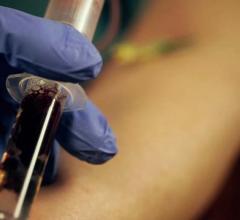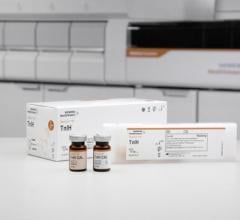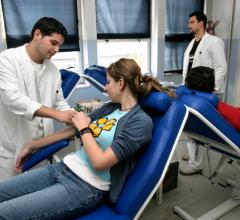The Laboratory Services unit of Rheologics has launched a Whole Blood Viscosity (WBV) testing program for physicians. The company specializes in facilitating the study of blood viscosity and its relationship to cardiovascular disease.
For general practitioners and internists, knowing the viscosity of their patients' blood provides a critical tool in evaluating the efficiency and health of a cardiovascular system. The role that blood viscosity plays in cardiovascular health is substantial, the company states. Since the cardiovascular system is a closed system, the viscosity or thickness of what the heart is pumping directly affects the heart's efficiency and the damage done to the arteries by blood flow.
As part of the program, patients' blood specimens are drawn at their physicians' offices into standard lavender-top vacutainers (EDTA) and shipped overnight in a cold pack to Rheologics' laboratory facility in Exton, PA. Rheologics provides physicians with the specimen collection kits used for convenient packing and shipping. Test results include a graph of the WBV Profile of the patient's blood against a benchmark as well as an interpretive guide. The results are typically provided within 24 hours.
Rheologics Laboratory Services uses an innovative scanning capillary viscometer called the Rheolog to measure the biophysical properties of circulating blood and provide a complete and accurate WBV Profile. The Rheolog, an FDA IDE-exempt device, captures a patient's continuous blood viscosity over a broad range of shear rates that mimic blood flow in the human vascular system.


 October 09, 2019
October 09, 2019 









